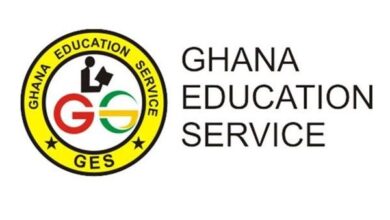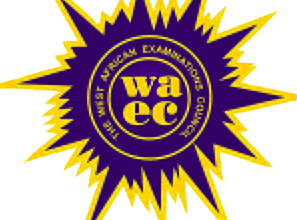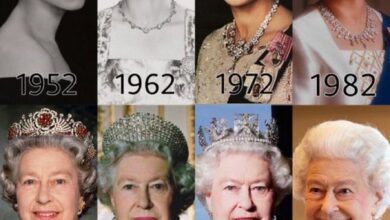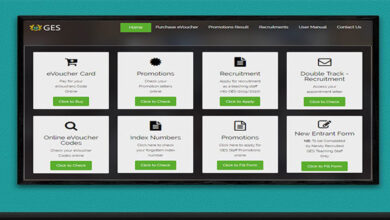Current Affairs and General Knowledge (Short Notes)
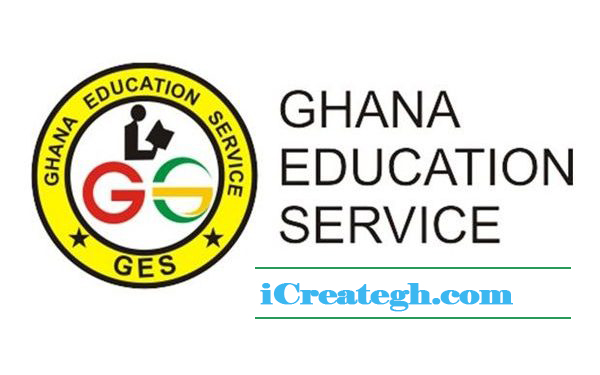
CURRENT AFFAIRS AND GENERAL KNOWLEDGE (SHORT NOTES)
PREPARE PERSONAL NOTES ON THE FOLLOWING ISSUES
1. Educational news
- Date and venue
- The main issue
- Personalities involved
2. Economic, Social and Political Issues
- Date and Venue
- Events, Pronouncements, Policies
- Personalities involved
3. Crisis zones
- Famous crisis zones in the world
- Causes of the conflicts with dates
- Rebel groups and personalities
4. Sports and Games
- Date, Venue, Event
- Special features and personalities
5. Names of some personalities
- Chairmen and secretaries of political parties, political unions, trade unions, etc
- Leaders of educational units, departments
- Women in Ministerial and presidential positions.
- Celebrities and their activities
READ ON: GES Promotion Aptitude Test Trial Questions and Answers for PS
CURRENT AFFAIRS AND GENERAL KNOWLEDGE (OBJECTIVES)
1. The Arab spring started in ……….., at …………………
ANSWER
2. During the Arab spring, president Morsi Mohammed was accused of promoting ………
ANSWER
South Sudan became the newest country in the world in …………. With her first president as …….
ANSWER
3. The original Sudan was divided into North and South as a result of ……….
ANSWER
4. The two major ethnic groups in Sudan are ……….
ANSWER
5. Activities to cause fear in people by threats or acts of violence is called ………
ANSWER
6. AL Qaeda movement is common in ……….
ANSWER
7. Boko Haram is from which language?
ANSWER
8. Boko Haram means what?
ANSWER
9. The mandate of Boko Haram is to establish……. in Nigeria.
ANSWER
10. The election petition casein Ghana’s Supreme Court, Accra took place in ……… between NPP and NDC with ………. Judges in attendance.
ANSWER
READ ON: ADI 2020 GES Aptitude Test Past Questions and Answers
11. During the election petition case, the NPP raised ………. Petitions and the leader of the judges was …………
12. NAM (Non – Aligned Movement) which was formed in 1961 means what?
ANSWER
13. The rebel group operating in Ukraine is called the ……..
ANSWER
14. Petroleum drilling in Ghana started in ……. and 9% of the oil fund is to be reserved for ……….
ANSWER
15. The Tweneboa, Enyira and Ntome oil fields in Ghana are referred to as ………..
ANSWER
16. Having sexual intercourse by force on female adult without her consent is called ………… while …… refers to having sexual intercourse with a girl child under 16 years
ANSWER
17. Persistent actions made on the opposite sex that make him/her embarrassed is referred to as ….
ANSWER
18. What is the full name of the following acronyms?
-
- SEIP – Secondary Education Improvement Project
- ADEOP – Annual District Education Operational Plan
- UTTDBE – Untrained Teachers Diploma in Basic Education
- ARIC – Audit Report Implementation Committee
- GIFMIS – Ghana Integrated Financial Management Information System
- IPPD – Integrated Personnel and Payroll Database
20. Civic Ghana and enterprise Ghana programs were introduced in which year?
ANSWER
READ ON: GES Promotion Aptitude Test 2020 for ADII with Answers
21. what should ECOWAS do before it can admit a state or country from East Africa as an Affiliate member?
ANSWER
22. Through technology, nations have closed proximity with one another. This statement can be an explanation for ………
ANSWER
23. Which two countries held opposite views in the recent political crisis in Syria?
ANSWER
24. In the 2013 election petition case, NPP claimed that voting took place in how many unknown locations?
ANSWER
25. What is the full name of the Controller and Accountant General?
ALSO READ: GES Aptitude Test Questions And Answers For ADI (Trial Questions)
CONTEPORARY ISSUES IN EDUCATION: POLICIES, REFORMS, PROGRAMMES AND INTERVENTIONS (SHORT NOTES)
Policy and Reform explained.
- What is policy?
It is a set of ideas or plan of what to do in a particular situation that has been agreed upon officially by a group of people, business entity or government.
- What is an educational policy?
A plan to solve educational problems or a plan to promote desired education objectives.
- What is educational reform?
A public policy that brings about major changes and guides the decisions and actions of government on education.
- Three (3) main types of educational reforms
1. Radical: Breaking away completely from the past. Eg JSS replacing MSLC in 1987
2. Moderate: Not breaking away completely from the past. eg 2007 educational reform that changed the JSS and SSS to JHS and SHS respectively.
3. Adhoc : bringing a policy to solve a problem and withdraw it after solving the problem. eg fee – free rewriting of SSSCE in 1993.
ALSO CHECK: ADI 2020 GES Aptitude Test Past Questions and Answers
Policy formulation and implementation.
- Factors considered in policy formulation.
1. The needs of the society.
2. The needs of the individual.
3. The resources for implementation
4. The strategies to be adopted for implementation.
5. The support of the public.
6. Whether the policy is feasible.
7. Its impact on the people.
- Stages in educational policy formulation.
1. Identification of a problem at the grass root level
2. Agenda setting (objectives)
3. Developing policy proposals
4. Lobbying for political support
5. Legislation processes
6. Providing agency for implementation
7. Allocation of resources for monitoring and supervision.
8. Evaluating policy performance to assess its impact on the people.
Find out about the following topics
- The stages in the implementation of educational policies / reforms.
- How the MOE assists the GES in policy / reforms implementation.
- The role of the teacher in implementing MOE policies/ reforms.
Educational systems and outcomes
(a) Main types of educational systems
1. Universal : education for all
2. Compulsory : mandatory for all
3. Inclusive : equal access to education
4. Democratic : satisfies the people’s need
5. Minimum Universal : minimum level for all.
(b) Four main components of Educational system
- The people : pupils, teachers, etc
- The content : the curriculum
- The structure : KG, Primary, JHS, etc
- The physical structure ; classroom, libraries, etc
(c) Explain educational outcomes
- Refers to achievements in terms of knowledge, skills and values acquired at the end of schooling.
- May also be referred to as quality of education.
(d) Explain the externalities of education
- Refers to benefits that individuals and society derive from education /schooling.
(e) The four (4) Ps that affect educational outcomes.
- Politics of the country.
- Educational policies of the country.
- Educational programmes.
- Educational process
CHECK ALSO: Aptitude Test Questions and Answers in Ghana For PS, AD2 , AD1 AND DD – 2022
(f) Find out about the following topics:
- The three (3) indicators used to measure educational outcomes.
- Measures Government has put in place to promote inclusive education system in Ghana.
- Cost sharing in Education.
- Pattern of funding Education in Education.
(g) Free Compulsory Universal Basic Education
(i) The main objectives
- Increasing access and participation.
- Improving quality of teaching and learning.
- Improving management efficiency.
(ii) Find out about the activities outlined to achieve the objectives above.
(h) Social interventions
- During President J.A. Kuffour’s regime
(ii) Livelihood Empowerment Against Poverty. (LEAP)
(iii) School Feeding Programme
(iv) Capitation Grant
(v) Supply of laptop computers to some schools
(vi) TV sets for distance learning in some schools.
- During President Pro. J.E. Attah – Mills’s regime
(i) Supply of school uniforms to some pupils.
(ii) Supply of exercise books to some pupils.
(iii) Supply of laptop computers to some schools
(i) Find out about the challenges associated with the interventions.
(j) Capitation Grant
It takes care of the following:
- Music, culture and sports fees.
- Provision of teaching and learning materials.
- Maintenance of office and classroom furniture.
- General minor repair works
- In-service education and training.
- Provision of assistance to brilliant but needy pupils.
- Enrolment drive
- Management services.
(k) Find out about the areas:
- The aims of the introduction of the grant
- The current amount per head in a year.
- How the grant is disbursed to schools?
- Its positive impact on education.
- Challenges facing implementation
READ ALSO: GES Promotion Exams Questions and Answers (Mock)
Major educational reforms
- The 1951 Accelerated Development Plan for Education
- The 1987 Education Reform (JSS Concept)
- The 2008 Educational Reforms (of Act 778)
Main Features (Components of Educational reforms)
- The Act that established it.
- The structure of Educational and its duration.
- The content
- Teacher Education element
- Education management issues
- Other special provisions
(l) 2008 Educational Reforms (some High lights)
- Kg was made part of the mainstream to start from age four (4)
- provides for five (5) level structure. Eg kg – 2years, primary – 6years, JHS – 3years, SHS – 4years and tertiary – 3 -4years. Note that the four years SHS changed to 3years the following year by the NDC Government.
- TTC was upgraded to colleges of Education to award DBE certificate
- One-year apprenticeship for JHS three products who would not be able to proceed to SHS.
- GES to be responsible for coordinating educational policies and programmes at the pre- tertiary level
- District Assemblies to manage all pre-tertiary schools in their respective districts.
- Establishment of three autonomous bodies which are: NTC, NIB, NaCCA.
READ ON: GES Promotion Examination 2022 – Areas of Study
(m) Find out about the following topics/areas
- The divisions which were replaced by NTC, NIB and NaCCA and their functions.
- The main differences between the middle school and the JSS Education Programme.
- The major features of the 1951 and 1987 Educational reform.
- Special contributions of Dr. Kwame Nkrumah to the development of Education in Ghana.
- Free SHS Education Policy (Sept 2017)
- Double Track Education System (Sept 2018)
- Why pupils in private schools generally perform better than those in public schools.
- Should the GOG give the mission schools back to the churches to manage?
- Should the GOG invest in the infrastructural facilities of private universities?
- Should students in private SHS enjoy the Free SHS Education Policy?
(n) The four corners/centers of the kindergarten classroom.
- The four corners/centers
- Sandy corner/center
- Shopping corner/center
- Make belief corner/center
- Nature corner/center
- Find out about the following areas.
- The meaning of kindergarten.
- The aim of designing the four corner /centers
- What teaching and learning activities should take place at these corners/centers
- Why is the four corners/centers absent in some Kg classrooms today?
CHECK THIS ALSO: Posting of GES Staff Returning From Study Leave – 2022
(o) Some conditions of service in the GES
- Find out and make personal notes on the policy guidelines on the application/implementation of the following terms and conditions of service in GES:
- Leaves of absence
- Secondment
- Incapacitation
- Allowances
- Re-engagement
- Re-instatement
- Replacement
- Re-activation
- Transfer
- Types
- Inter – district
- Intra – district
- Inter – regional
- Reasons
- Mandatory (for teachers who stay at one school or station for 10years or more.)
- Punitive (disciplinary)
- Request by the teacher
- In the interest of the service
- There is no transfer benefits for punitive transfer and transfer requested by the teacher.
- See the HR officer at your District Education office to know requirements for processing transfer grants
RECOMMENDED
- Apply: GES Promotion Portal 2022/2023
- Current Affairs and General Knowledge (Short Notes)
- NTC Exams & Update
- GES Aptitude Test Past Questions 2021 with Answers for ADII
- Classroom Management Short Notes for Promotions
You can join any of our platforms below to be updated anytime we publish new articles.
<<< CLICK HERE TO JOIN OUR WHATSAPP GROUP >>>
<<< CLICK HERE TO JOIN TEACHERS PORTAL GH (GRP2) ON WHATSAPP >>>
<<< CLICK HERE TO JOIN OUR TEACHERS PORTAL GH ON TELEGRAM >>>

